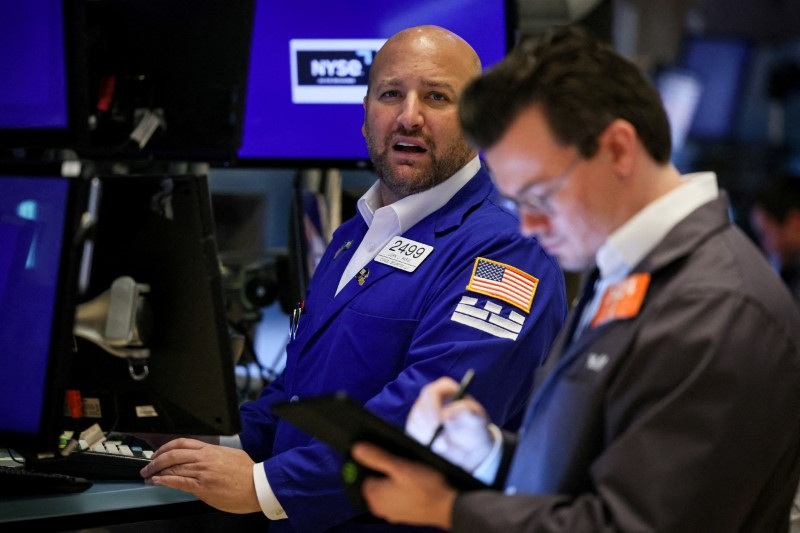Hedge funds ghost tech stocks and sell consumer staples – Goldman Sachs
2023.11.20 05:27

© Reuters. FILE PHOTO: Traders work on the floor of the New York Stock Exchange (NYSE) in New York City, U.S., September 28, 2023. REUTERS/Brendan McDermid/File Photo
By Nell Mackenzie
LONDON (Reuters) – Global hedge funds ditched technology stocks by selling long positions and exiting short bets at the fastest weekly pace in seven months, Goldman Sachs said on Friday in a note to clients seen by Reuters.
In the period from Friday Nov. 10 to Thursday Nov. 16, traders dropped long and short positions on semi-conductor makers, as well as communications equipment providers, while exiting long positions on software companies, just as stock valuations climbed to a two-month high, well above a long-term average.
A short bet is one that counts on a stock price falling.
Frothy valuations and waning hedge fund interest might mark the end of the tech “performance concentration” seen over recent years, Florian Ielpo, head of macro at Lombard Odier Investment Managers, said.
“Equities valuations are expensive but it’s hard to say by how much. To surpass this level, we need earnings growth, and a lot of that is priced in already given analysts’ expectations for next year,” he said.
Hedge funds were generally net sellers of global stocks by the end of Thursday, particularly in North American and emerging Asian markets, the Goldman Sachs note said.
They were net buyers of Europe and developed markets in Asia, Goldman said.
Hedge funds also sold U.S. consumer staples at the fastest pace since April 2020, and the sector suffered one of the heaviest selling spells of the past five years, it added.
Companies toting household goods, alcohol and tobacco in the week ending Nov. 17 made up the second weakest performing group in the S&P 500.
These stocks are generally known to deliver consistent and higher returns than U.S. Treasuries, but have been no match for recent soaring government bond yields.
Consumer discretionary stocks also saw hedge fund selling, whereas financial, industrial and health care companies saw their stock mostly bought, the note said.








